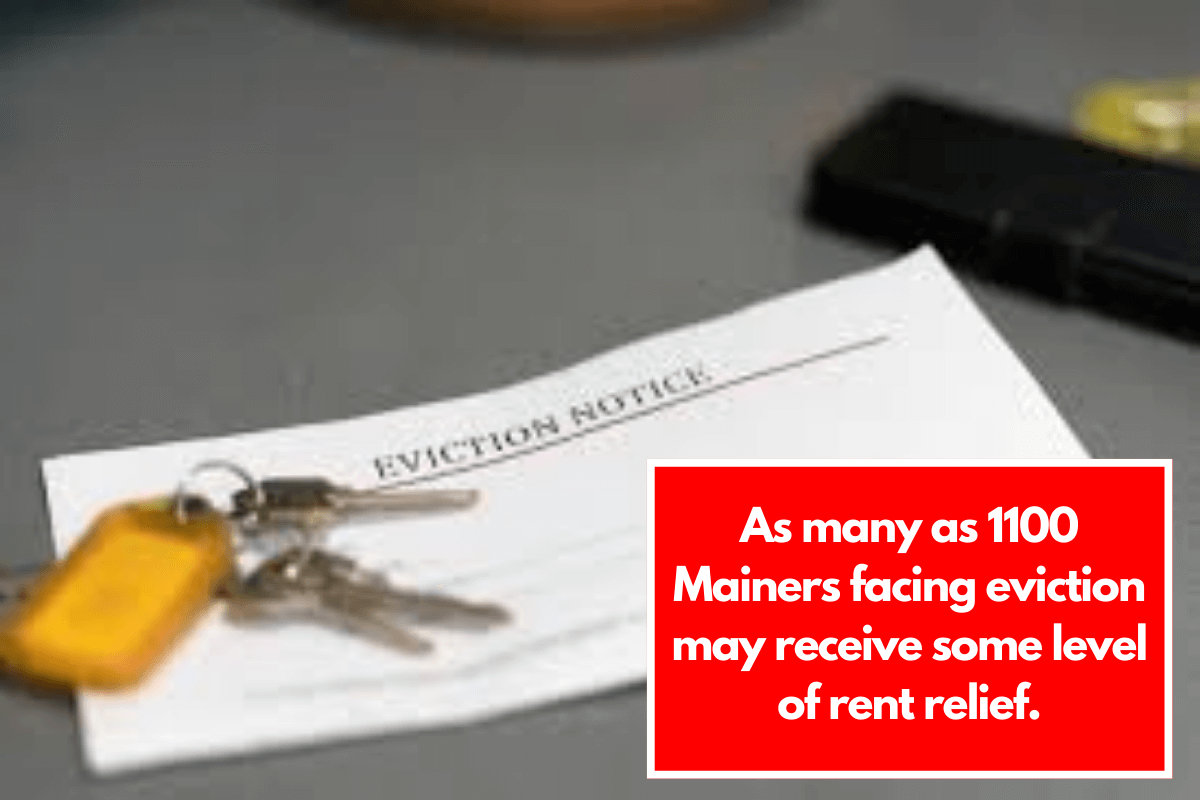Around 800 to 1,110 people in Maine will get a big chunk of their rent paid for starting next month, when the state starts its test programme to help people pay their rent.
The Maine Legislature and Gov. Janet Mills approved a one-time $18 million appropriation of state funds to launch the first state-funded eviction prevention programme.
This programme is meant to help families who are in court facing eviction or have received notices of eviction.
Every month, participants will get $800 in rental help sent directly to their landlords. If they pay less than that, their rent will be paid in full.
That’s what the Quality Housing Coalition, an organization based in the Portland area that has a deal with the Maine State Housing Authority to run the programme, says. Maine Housing says that people can start applying for the programmed at the end of this month.
The Portland-area nonprofit used to have its own program to keep people from being evicted, and it now has other housing programes for single mums.
Victoria Morales, executive director of QHC, said that one way to fight poverty is to keep housing stable while building more of it and handling the large amount of housing debt that low-income families have.
“We really see this as a way to use people’s money for other things they needed but couldn’t get because their housing costs were so high,” Morales said.
It tackles the home affordability gap because many people can’t afford what the market wants.
The programme requires applicants to make 60% of the area’s typical income, which affects renters more than homeowners, Morales added. They must also pay less than 125% of the fair market rate, which varies by region and rental unit size in Maine.
QHC will examine applicants first-come, first-served after satisfying urgent needs of eviction victims. Morales said landlord payments may begin in November.
She said the one-year programme may help renters save enough and pay their own rent once it ends.
Low-income families, especially immigrant and low-income single mums, receive direct cash help from QHC in different programmes across the state. Most of the 20 mums who received $1,000 of unrestricted income each month in the first year of that programme used it for rent, Morales said.
QHC will prepare participants for the restricted rental assistance programme and ask them to establish a plan thereafter using lessons from Project HOME Trust.
“It’s not going to solve everything, but it will house people next year,” she said. “And it’ll prevent so much crisis for individuals and children.”
Evictions surge after pandemic-era dip
The programme will prioritise tenants who need immediate support to avoid eviction and those who have received a notice to vacate from their landlords or are at risk of eviction if lease requirements aren’t met.
According to a 2023 Pine Tree Legal survey, most Maine tenants are evicted for nonpayment. Out of thousands of cases the law firm analysed, 25% of renters were automatically evicted for not appearing in court.
Maine has had a stable eviction rate for the past decade, save for the pandemic, when the state operated a federally sponsored emergency rental assistance programme.
Over 17,000 Maine tenants received emergency aid worth over $100 million, according to MaineHousing.
That programme temporarily lowered court eviction filings from 5,125 in 2019 to about 3,000 in 2020 and 2021, according to Maine Judicial Branch data, which records cases but not decisions.
After the programme stopped, monthly eviction cases in the state rose to 5,800 in 2023, the highest amount in five years.
By August 2024, 3,121 homes or individuals had court eviction filings.
Morales said that losing a home affects people’s health, leaves a stain on their record, and makes it harder to find housing. It also makes them more likely to turn to shelters or risk being policed or hospitalised.
“We focus on the human cost, but to our community who may be concerned about funding something like this, the cost to keep people unhoused and in a homelessness system is exorbitant,” Morales said. Eviction is costly for landlords and courts. We spend a lot of money on that and don’t track or think about it because it’s the status quo.”











Leave a Reply